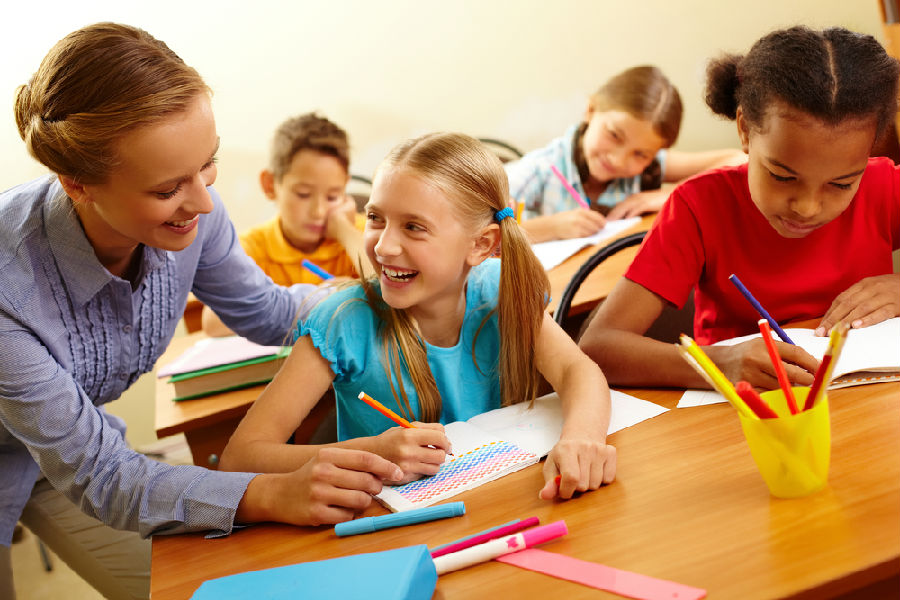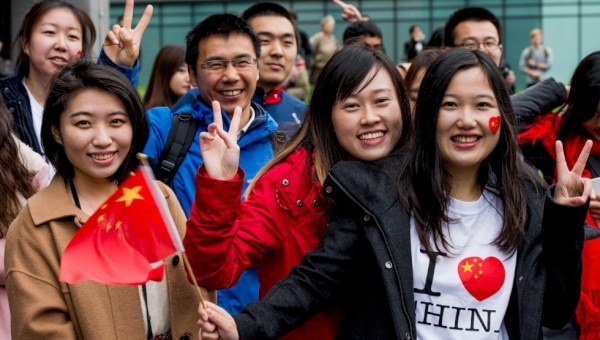


What should schools put first? Discipline or creativity?
What type of schools do we want? Should it be about creativity and independent thinking? Or should it be about getting the basics right and taking a tough line on discipline?
Of course, these things are not mutually exclusive. Many people would probably want both.
But an international study from the Pew Research group in the United States asked people in 19 different countries to say which they would make their priority.
If they had to choose, which would they prefer - promoting creativity or attending to the "academic basics"?
The research, part of Pew's annual survey of global attitudes, showed big cultural differences towards education - and widening political polarisation.
In countries such as Spain, Germany, the Netherlands, Sweden and Canada, there was a clear preference in public opinion for an education system that emphasised creativity and independent thinking.
In Spain, 67% of people wanted schools to prioritise the teaching of creativity, compared with 24% who wanted schools to focus on the academic basics and discipline.
But at the other end of the spectrum was the UK, where researchers found that 51% wanted schools to prioritise the basics and discipline, compared with 37% who thought schools should pay more attention to cultivating creativity.
In many ways, this no-nonsense view in the UK was closer to the less developed countries included in the survey, such as Kenya and Nigeria, where the expectation was that schools should get on with teaching the basics.
Countries such as the United States, Australia and Japan hovered somewhere in the middle, with opinion divided.

In China, there was the strongest demand to have all these aspects of education, without choosing between them.
As well as wanting to test public opinion on the style of education, the Pew research investigated how much liberal or traditional views of education were proxies for political divisions.
The researchers said that in most advanced economies, such as in western Europe and North America, "educational preferences are an ideological issue".
They found that by far the most politically divided countries were the United States and the UK, with right or left-leaning people having very different ideas about education.
In countries such as the Netherlands, Canada and Germany, views on education were more likely to overlap between political liberals and conservatives.
A previous survey from Pew, published last month, provided a stark example of the divisions in attitudes in the United States.
The research group has been tracking attitudes towards higher education in the US - and up until a few years ago, a clear majority of both Republican and Democrat supporters would have seen universities and colleges as a positive benefit for the country.
But Republicans have become increasingly sceptical about higher education - and in 2017, Pew reported that 58% believed "colleges and universities have a negative effect on the way things are going in the country".
Among left-leaning Democrat supporters, the trajectory has been in the opposite direction, with 72% now believing that higher education provided a "positive impact" on the US.
There were also contrasting perceptions about the purpose of higher education. Most Republicans saw the value in terms of gaining specific skills, while Democrats were more sympathetic to the idea of "personal growth".
Will such public attitudes filter through to choices over public policy?
Another set of international statistics published this week compared education funding and priorities in public spending.
Eurostat data, for European Union members and some other European countries, showed Denmark, Sweden and Iceland were the biggest spenders on education, as a proportion of national wealth.

Finland, Belgium, Estonia and Latvia were also high spenders, with the UK mid-ranking and close to the EU average.
The figures also show the huge differences in funding - with those at the upper end of the scale receiving more than twice those at the bottom, in terms of a percentage of GDP. This is about choices as well as resources.
If Denmark was at the top of the rankings for school budgets, it was at the bottom for spending on "public order and safety", such as policing. Romania, lowest on education spending, was almost at the top for spending on public order.
Education systems will continue to be a mirror for wider battles over politics and priorities.
Source: http://www.bbc.com/news/business-41082408